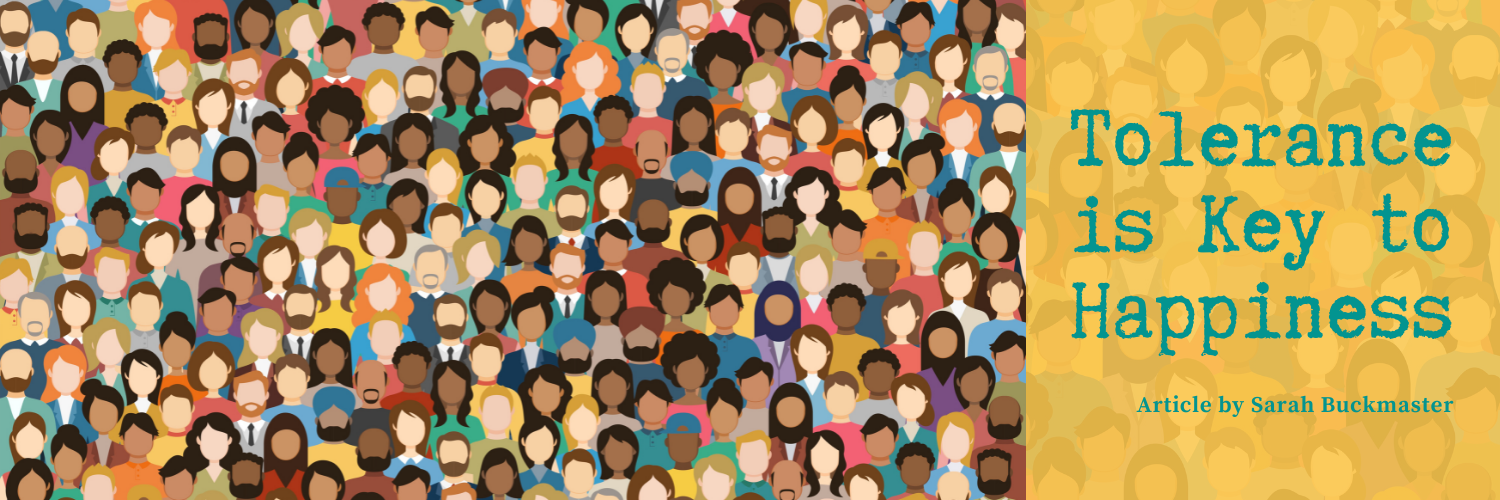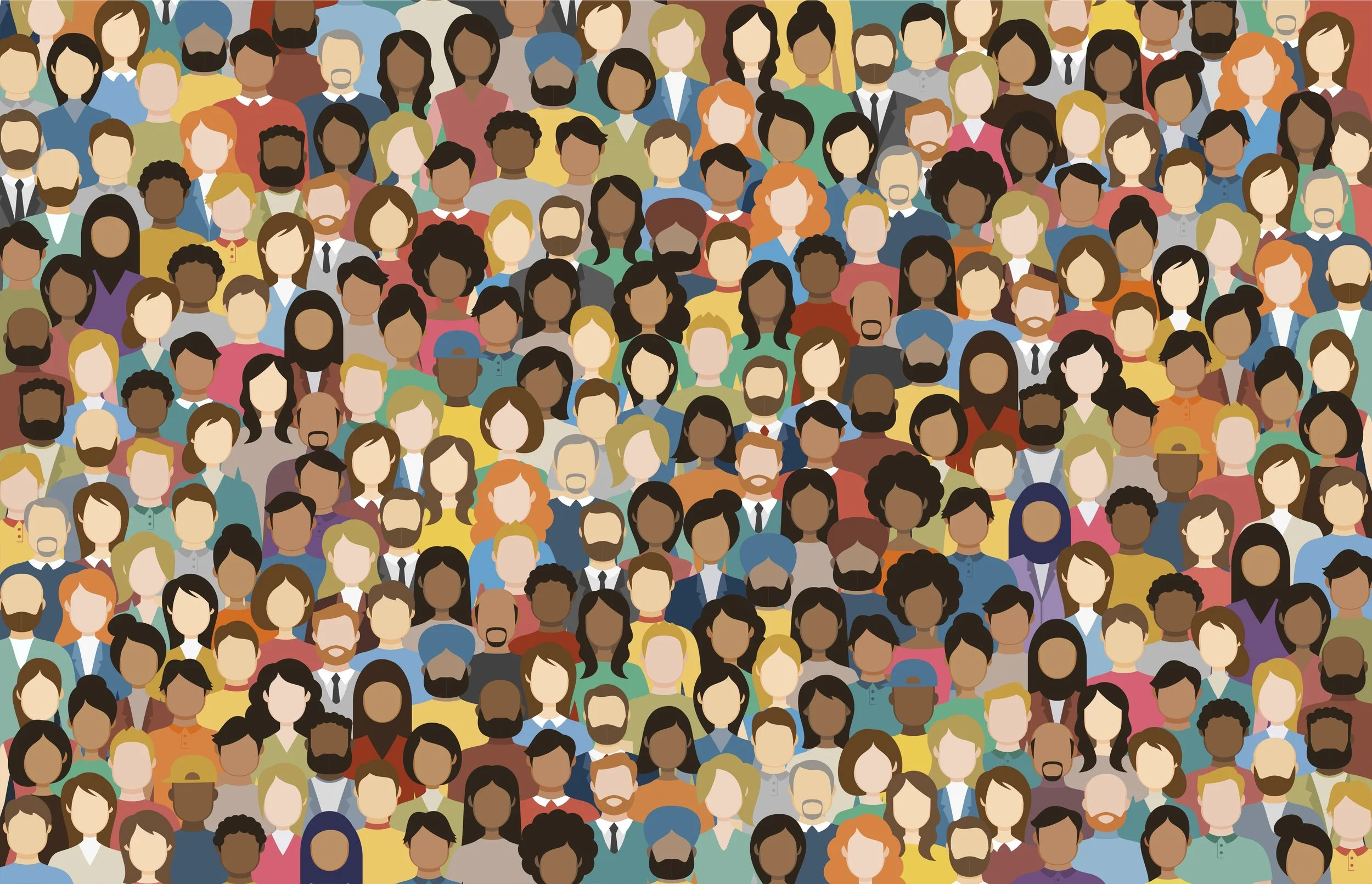
Tolerance is Key to Happiness
What do a Buddhist Abbott, Jewish Rabbi, and Muslim Imam agree upon when it comes to living a life of peace and happiness? Tolerance.
On this year’s International Day of Tolerance, Sarah Buckmaster, host of the How to be Good? podcast finds out more.
“No one has a monopoly on good or evil. We all stumble through life. We all make mistakes. We all have the capacity for the best and the worst of human nature”.
Imam Abdulah Polovina smiles warmly as he says these words. Having devoted his life to demystifying the Islamic belief-system in the USA, he strongly advocates for increased understanding of different cultures and beliefs; “no matter whether Muslim or non-Muslim, or Christian, or Jewish, we are all humans. We need to be there for each other.”
From Jewish Rabbis and Buddhist Abbots to Pagan Druids and Humanist Celebrants, I’ve spent the past year interviewing religious and spiritual leaders from all corners of the globe, exploring what it means to be a good person in today’s world.
The How to be Good? podcast asks people from all walks of life what goodness means to them, and what advice they’d give on how to live a life of peace and happiness. And, as we celebrate this month’s International Day of Tolerance, a day to respect and appreciate ‘the rich variety of our world's cultures, our forms of expression and ways of being human’, it’s a perfect time to celebrate the golden thread of connection that ran through each of these conversations.
The people I’ve interviewed over the past 12-months come from dramatically different belief-systems, but when it comes to living a life of peace and happiness, here are the three things that they all agree upon.
Create community with the people around you
“"as a human nature, we are social beings ”
Without fail, whether a religious Priest or non-religious Humanist, everyone interviewed highlighted our need, as humans, to be in community. In the words of Buddhist Abbot, Khen Rinpoche Geshe Tashi Tsering, “as a human nature, we are social beings”.
We need connection to survive, but the way we view community could be limiting the rewards we reap from it.
Rather than considering our community as just our family and chosen friends, Jewish Rabbi Elli Tikvah Sarah recommends opening our eyes, “developing that consciousness of our need to connect and being concerned about the people around us.”
Appreciating the community that surrounds us every day can help provide that sense of connection that we so desperately need. And this is where tolerance leads to success.
Creating community with those around us involves getting to know people who are different to us. Imam Abdulah believes in approaching anyone we don’t understand with curiosity rather than judgement. “Get to know them”, he says, and Imam Abdulah is a man of his word. Not only was he the first Muslim ever to enrol at Seattle University's School of Theology and Ministry, which is a Catholic college, but he counts many other faith leaders as close friends, or as he calls them, his “brothers and sisters”.
2. Focus on Forgiveness
Now, this is a tough one for so many of us. Forgiveness is difficult. But, despite differences in the details and processes, all the experts I’ve interviewed believe forgiveness is key to living a life of peace and happiness.
Buddhists often say that holding a grudge is like holding hot coals, with the intention to throw them at someone but you just hold onto them, harming only yourself. Along the same lines, a famous quote from American author and spiritual leader Marianne Williamson describes not forgiving someone as the equivalent of “drinking poison yourself and waiting for the other person to die”.
Considering these words of wisdom, it makes sense to start training our forgiveness muscle. Unfortunately, there’s no quick fix for this one. Forgiveness is a process that takes time, patience, and determination. But, considering how much it can lighten our load in life, it seems worth the investment. And, if nothing else, putting down those hot coals of resentment just feels so good.
3. Avoid binary thinking
Binary thinking is dangerous. It leads to division, hate and at its most extreme, violence and death. For Rabbi Elli Tikvah Sarah, much of the persecution she’s experienced as the first ordained lesbian Rabbi in the world to lead a mainstream synagogue has been the result of black-and-white thinking; the belief that there’s one right way and anything else is wrong.
Binary thinking – the yes/no, right/wrong, good/bad way of thinking – is rampant in today’s society, but as Buddhist Abbot Geshe Tashi shares, life is “never completely black and white. But we tend to interpret to ourselves, or to the others, good and bad, right and wrong. We don't see that between those two, there's huge grey space, and in that grey space, we have lots to learn”.
Without exception, all the people interviewed – from the first woman to be ordained as a Priest in the Church of England, to a member of the First Nations in Ontario, Canada - spoke about the need to live with uncertainty, to accept the deep complexities of life, and to not slip into black-and-white thinking. As Dr Pandita Indrani Rampersad, the first female to be officially ordained as a Hindu Priest in Trinidad, explained, living a life of contentment is all about avoiding polarities and "adapting to suit the circumstances that you are in"
“"we are so much more alike than different ”
True happiness is grounded in ‘mutual understanding among cultures and peoples’, the key message of November’s International Day of Tolerance.
We may not agree with everyone we meet, but we can create community with the people around us, embrace and enjoy our differences, and get more comfortable with the grey areas of life.
We may live in a world full of differences, but as Catholic Sister Adele Marie Altenhofen reminds us, when it comes to wanting to live a good life, "we are so much more alike than different. What a joy."
Happy International Day for Tolerance 2021!
Find out more:
The How to be Good? podcast explores how can we be good to ourselves and others through a series of interviews with people from all walks of life. Selected as a finalist in the 16th Annual People’s Choice Podcast Awards, How to be Good? aims to approach and celebrate different belief systems with warmth and curiosity. Find out more here.
Main image credit: Peter Pencil, iStock
Second photo by Vonecia Carswell on Unsplash

